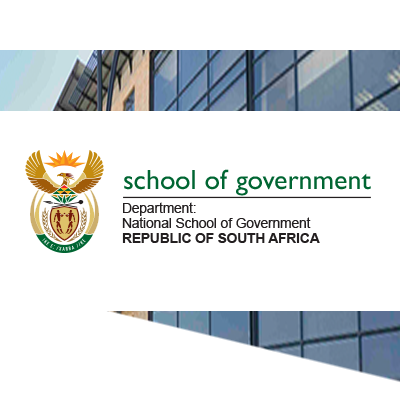SA Sends Delegation to China to Learn State Modernisation Best Practices
China's transformation from a predominantly rural, agrarian society into a highly industrialised global powerhouse has become an object of global study.

- Country:
- South Africa
In a major step toward strengthening the capacity of the South African state, the National School of Government (NSG) has launched a high-level international learning exchange programme in collaboration with the Academy for International Business Officials in the People’s Republic of China. Running from 7 to 27 May 2025, this three-week programme is designed to expose South African public servants and elected public representatives to the Chinese model of state modernisation and professionalisation.
This initiative comes at a pivotal time for South Africa, as the government intensifies its efforts to build a developmental and capable state. The exchange programme is fully supported by the Chinese Ministry of Commerce and reflects a growing trend of global South-South cooperation in the field of public sector reform and capacity development.
Understanding the Chinese Model of Modernisation
China's transformation from a predominantly rural, agrarian society into a highly industrialised global powerhouse has become an object of global study. In just a few decades, China managed to lift hundreds of millions of people out of poverty, culminating in the eradication of absolute poverty in 2020 — a goal achieved ten years ahead of the United Nations Agenda 2030 and South Africa’s own National Development Plan (NDP) target.
South African delegates will engage directly with Chinese experts and institutions to gain insights into the governance strategies, institutional reforms, and socioeconomic policies that powered this historic achievement. The Chinese experience serves as a valuable case study for countries like South Africa that are striving to combat inequality, reduce poverty, and expand inclusive economic growth.
The Role of the NSG and International Cooperation
The National School of Government plays a vital role in facilitating lifelong learning for public servants. It aims to foster a professional, ethical, and capable public service committed to effective governance. This exchange programme forms part of the NSG’s broader international cooperation strategy, which focuses on building global partnerships to enhance the skills and competencies of public officials.
Through such programmes, the NSG seeks to promote knowledge transfer, encourage comparative policy learning, and deepen the understanding of public administration reforms in diverse global contexts — from both the global South and North.
“State capacity is important in pursuing equitable and sustainable socio-economic transformation as well as safeguarding the rights and dignity of the people of South Africa,” noted the Minister for Public Service and Administration, Inkosi Mzamo Buthelezi, in congratulating the officials nominated for the programme. He emphasized that the Chinese experience offers inspiration for African nations striving for transformative governance and sustainable development.
Strategic Goals Aligned with the National Development Plan
The South African government continues to underscore the need for a capable state that can drive development goals as outlined in the NDP. These include creating inclusive economic growth, reducing poverty, lowering the cost of living, and fostering partnerships across all sectors of society.
The NDP clearly states that “South Africa can realise these goals by drawing on the energies of its people, growing an inclusive economy, building capabilities, enhancing the capacity of the state, and promoting leadership and partnerships throughout society.” Programmes like this learning exchange to China directly support these objectives by equipping public servants with global insights and actionable strategies.
A Broader Vision for Africa’s Development
In his statement, Minister Buthelezi also pointed out the continent-wide significance of such learning exchanges. He highlighted that African public officials who take part in these programmes bring back not only policy knowledge but also the tools to innovate and reform their institutions. This, in turn, contributes to more responsive, accountable, and transformative public sector performance across Africa.
By investing in the professionalisation of the public service, South Africa aims to align its domestic governance practices with international best standards while retaining the flexibility to tailor these insights to local needs.
Looking Ahead
The current delegation’s visit to China is only one part of a broader, ongoing effort by the NSG to enhance the public sector’s role in achieving South Africa’s developmental goals. As the country continues to face challenges related to unemployment, inequality, and infrastructure deficits, fostering a knowledgeable and skilled public sector leadership becomes ever more critical.
Through strategic partnerships, continuous learning, and international cooperation, South Africa is positioning its public service as a catalyst for change — capable of realising the vision of a just, equitable, and prosperous society.










